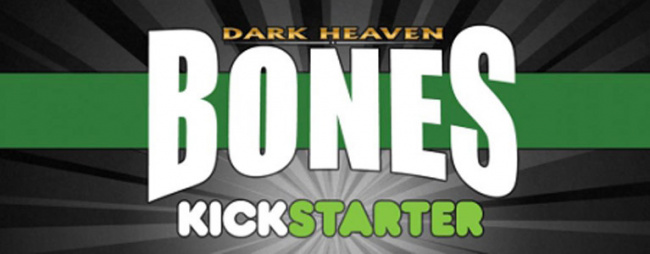Rolling for Initiative is a weekly column by Scott Thorne, PhD, owner of Castle Perilous Games & Books in Carbondale, Illinois and instructor in marketing at Southeast Missouri State University. This week, Thorne reflects upon the late Ed Pugh’s impact on the games industry.
I was sorry to read of the death of Reaper Miniatures’ Ed Pugh (see “R.I.P. Ed Pugh“). I only met him a handful of times over the years and others who knew him better have penned far more eloquent tributes to him over the course of the last week. Not only did he found one of the only major miniatures companies not relying on licenses, from my point of view, he also changed the industry in two important ways; first with the Bones line of miniatures, and secondly with the Bones miniatures Kickstarter.
Up until the release of Bones, miniatures in the game industry had been cast in lead and in pewter; both of which were problematic to assemble and glue, and got progressively more expensive over the years. The Bones line showed that a company could produce a highly detailed plastic/resin miniature for significantly less than a comparable metal miniature and moreover, that the market could support a line of inexpensive quality plastic miniatures. I heard doubts at the time as to whether the line would prove successful.
Obviously, it was successful. Metal miniatures were supplanted by plastic miniatures for most enthusiasts, with only the true collectors of metal miniatures still buying them. I have not sold a pack of metal miniatures to a customer in well over a decade. Unfortunately for Reaper and Bones, WizKids would eventually acquire the licenses to the Dungeons and Dragons and Pathfinder character and creature designs. Those licenses, coupled with WizKids decision to put two-character figures into one package for only a little more than the cost of a single Bones figures, resulted in many stores drastically expanding their WizKids range and cutting back on the Bones figures. Since the release of the WizKids’ D&D lines, our store went from eight feet of Bones figures to a little more than two.
The other change Pugh and Reaper brought to the industry was increasing the acceptability of stores supporting Kickstarter campaigns to gain access to product lines. The first Bones Kickstarter, launched back in 2012, raised over $3 million to launch the line (see “Reaper Kickstarter Raises $3.4 Million“). Reaper announced at the GAMA Trade Show prior to the launch that the Kickstarter would open to retailers and that retailers would get the entire line of figures plus any stretch goals unlocked at about a 60% to 70% discount versus buying the figures individually through distribution. I remember the applause in the room when Reaper made this announcement, and the number of retailers that signed up as soon as the campaign opened and how quickly it funded. Prior to this campaign, there were Kickstarter campaigns that included retailers, but Reaper’s was the first one to actively reach out and target retailers, even including racks and signage with the package. I still have one of the Bones signs in use in the store somewhere.
After the Bones Kickstarter, more creators started offering levels targeted at retailers and retailers started pushing campaign creators to offer retailer-oriented pledge levels in Kickstarter campaign. Although the interest fueled by Reaper’s initial campaign has slowly waned over the past decade, there is still a strong coterie of retail stores looking to back Kickstarter campaigns when the terms offered are favorable to the store.
That’s a fine legacy for anyone to leave. Thank you, Mr. Pugh. Comments? Send them to castleperilousgames@gmail.com.
The opinions expressed in this column are solely those of the writer, and do not necessarily reflect the views of the editorial staff of ICv2.com.
Source: ICv2




